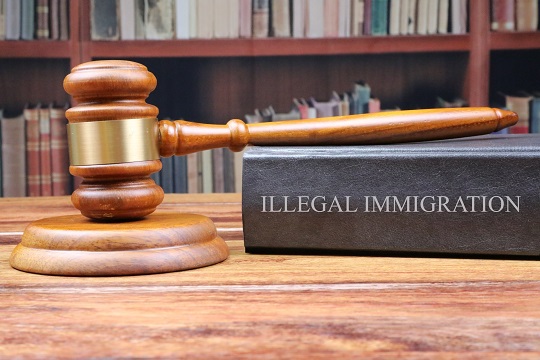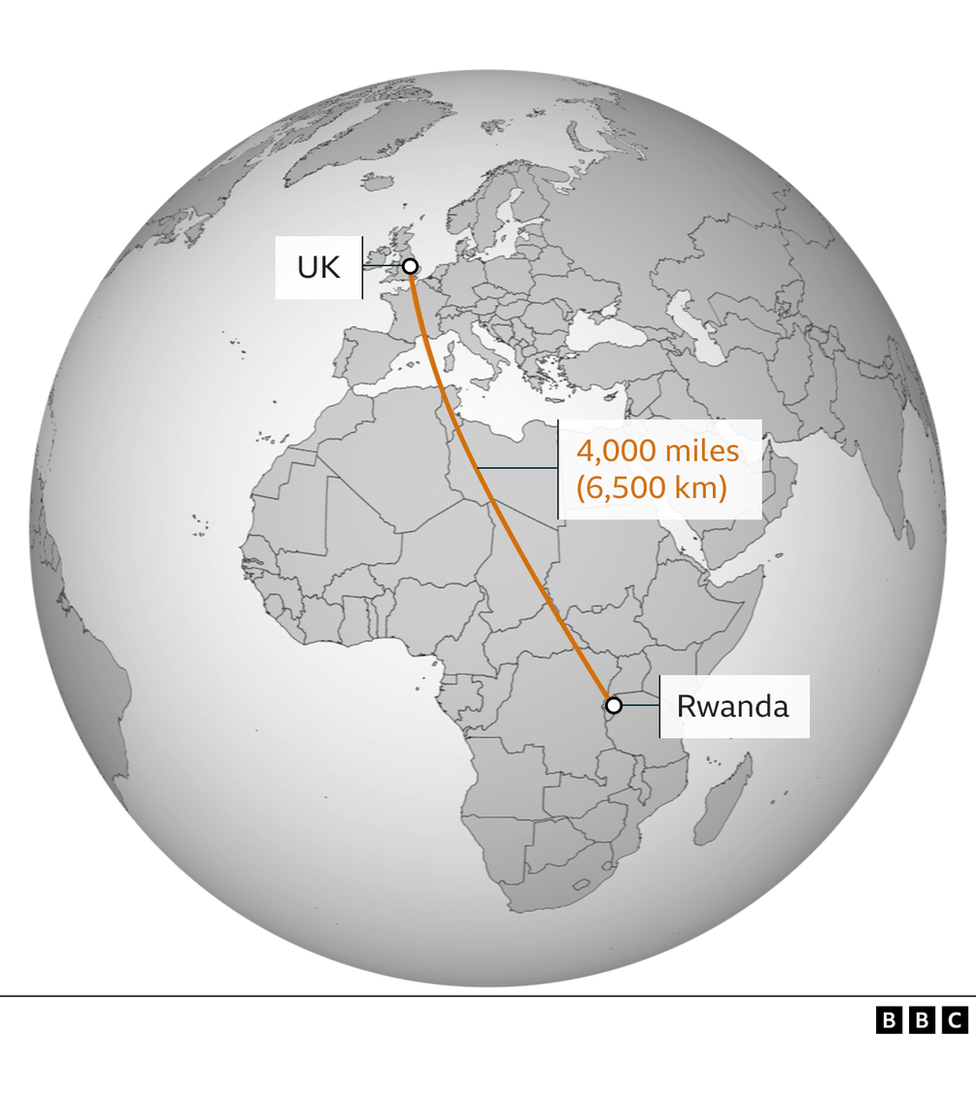
The government’s first flight taking asylum seekers to Rwanda can go ahead on Tuesday, appeal court judges say.
It supports a previous decision by the High Court that it was in the “public interest” for the government to carry out its policies.
Under the scheme, some of those entering the UK illegally will be flown to Rwanda to apply for asylum there.
Campaigners were trying to stop the flight before a full hearing on whether the policy is lawful next month.
The charity Detention Action and the PCS union that represents some Border Force staff, who were among the groups who brought the case, said they were “disappointed” by the decision.
Eight people are expected to fly to the landlocked east African country on Tuesday evening, a Home Office source told the BBC.
The numbers drastically reduced after legal challenges relating to modern slavery and human rights claims, according to a government source.
The government says the scheme will discourage dangerous journeys across the English Channel and therefore undermine smuggling gangs, but charities, religious leaders and opposition parties have criticised it.
People sent to Rwanda will be given accommodation and support while their asylum application is considered by the Rwandan government.
If they are successful, they can stay there with up to five years’ access to education and support.
If they are not, they will be offered the chance to apply for other immigration routes, but could still face deportation.
At the urgent hearing on Monday, three senior judges ruled there was no error in the High Court judge’s decision last week to allow the flight to go ahead.
They also refused permission for an appeal to the Supreme Court against their decision.
Just before the ruling, SNP home affairs spokesman Stuart McDonald told MPs in the Commons it was a “cash-for-deportations” policy “akin to state-sponsored trafficking and transportation”.
But Home Office minister Tom Pursglove replied that the comparison was “plain wrong” and “very offensive not just to this government but also, I’d argue, hugely offensive to the Rwandans too”.
Mr Pursglove said the policy offers “new opportunities for those relocated to Rwanda” and “people will no longer be able to pay evil people smugglers to go to a destination of their choice while passing through safe, sometimes several safe, countries.”
Meanwhile, the head of the UN Refugee Agency, Filippo Grandi, said the plans were “all wrong” and could set a “catastrophic” precedent.
And leaders of the Church of England – including the archbishops of Canterbury and York – wrote in the Times that it was an “immoral policy that shames Britain”.
Later on Monday a High Court judge dismissed a separate, similar challenge brought by charity Asylum Aid.
A lawyer for the charity argued asylum seekers were “effectively guinea pigs” for a process that hadn’t been properly tested, but the judge concluded some of their arguments were “thin”.
More than 10,000 people have made the dangerous journey across the Channel so far this year. Another 37 people were brought into Dover by Border Force earlier on Monday.
At-a-glance: What’s happened so far
- The PM announces the five-year £120m trial in which some asylum seekers will get a one-way ticket to Rwanda
- It faces widespread opposition from more than 160 charities and campaign groups, a small number of which launch a legal challenge
- Home Office lawyers say the plan is in the public interest – and the High Court agrees
- Campaigners appeal the ruling but are unsuccessful
- Judges will consider whether the policy is lawful next month – this could see some people returned to the UK from Rwanda if it is ruled unlawful


This is a major legal victory for Home Secretary Priti Patel.
The Court of Appeal’s decision underlines one of the principles of how the law works: if a judge decides there’s no pressing need for an injunction, then unless there is a major legal fault with their reasoning, more senior judges should not overturn their decision.
General concerns about the human rights of would-be passengers, in the broadest sense of the phrase, have been repeatedly raised over the last couple of days.
Yet the courts have shown, contrary to the views of some commentators, that those safeguards are not a bar to the government pursuing its policy objectives if the law appears to be correct.
Lord Justice Singh noted that the outcome of next month’s full challenge to the policy could hypothetically see asylum seekers returned to the UK, were they to win the day.
But the more immediate question is this: how many asylum seekers will actually be on the flight?
Source: bbc.co.uk






Be the first to comment